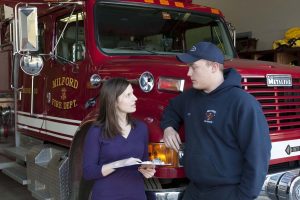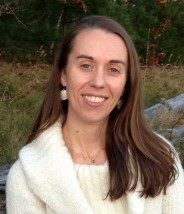Science and Communication in University-Community Collaborations
In mid-October, Bridie McGreavy of UMaine’s Department of Communication and Journalism and the Mitchell Center and Karen Bieluch of Dartmouth College and the Mitchell Center conducted a three-hour workshop designed to help researchers better connect their research with decision-making at the local, state and federal level through team-based research.

The workshop combined insights from science communication, interdisciplinary team collaboration, science and technology studies, and stakeholder-engaged research to show how researchers can connect science and decision-making more effectively. It drew on research and case examples from lived-experiences to identify key questions and demonstrate best practices.
Among the dozen UMaine researchers who attended were Amanda Klemmer, assistant research professor of Food-web Ecology in the School of Biology & Ecology, and Sandra De Urioste-Stone, assistant professor of Nature-Based Tourism in the School of Forest Resources.

Klemmer attended the workshop because she has a project on rockweed harvesting that is heavily involved in stakeholder engagement. (Klemmer discussed this project in her Sept. 24 Sustainability Talk.)
Klemmer notes, “I hadn’t had much experience working with stakeholders before, and thought the workshop would be really valuable. I learned a lot about ways to create safe environments where people feel like they can openly share their point of view. I also got a lot of one-on-one advice that was invaluable.”
De Urioste-Stone says the workshop was extremely useful as her research team works to plan and implement a new National Science Foundation (NSF) Research Traineeship Program to provide future conservation leaders with training in the interdisciplinary communication, collaboration, and professional skills necessary to address emergent conservation issues.
“It was helpful to get ideas on communication, how to enhance respectful, effective and efficient communication with partners, colleagues, and students,” Urioste-Stone says. She adds, “I want to enhance my ability to communicate my research with diverse audiences, train students to be better communicators and gain ideas for our new project.”
